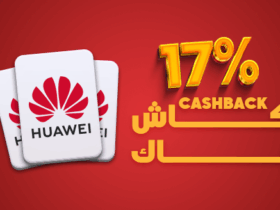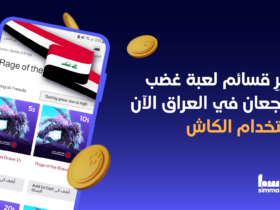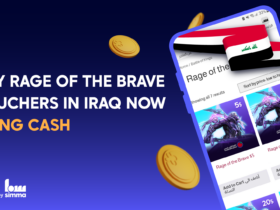We know the Middle East and North Africa (MENA) can seem like uncharted waters for newcomers looking to expand into its markets. The immense region spans 19 countries split into multiple subregions, all having their own unique cultures, dialects, habits, accessibilities, demographics, and trends. At times, international brands have cannonballed into MENA with little to no idea of its intricacies only to quickly sink to the bottom of the Arab consumer’s list.
The gaming industry, especially mobile gaming, usually falls into this trap. Some developers have successfully avoided it and captured market share by putting in the effort to understand its nuances and tailor their offerings to local users. While localization for the habits, resources, accessibility, and language of the MENA-based mobile gamer might seem like a mountainous endeavor, we at Tamatem are here to guarantee international developers’ seamless integration into the market, and to bring their games to every mobile in the region.
What Makes MENA’s Emerging Markets Different
We’ve extensively covered what makes each MENA market unique in our previous piece “How Culture Plays A Role in Shaping MENA Markets,” detailing how to navigate its different corners. Aside from a select few affluent Gulf countries, most of MENA remains unbanked and very cost-sensitive. The region is primarily Arabic-speaking but has an array of different dialects, and it’s mostly made up of young tech-savvy populations readily joining the digital age of gaming and entertainment.
MENA also continues to heavily rely on cash for various sociopolitical, cultural, and economic reasons. This deeply affects markets like mobile gaming that rely on digital transactions for their revenue. Many public and private sector initiatives that have emerged in recent years promise to reform and usher the region into the global digital economy, but that remains to be seen.
Give our “Why Cash is King in MENA” piece a quick read for interesting insights into the payments and financial habits of MENA’s populations.
At Tamatem, we’re building that crucial bridge between international game developers and MENA’s mobile gaming masses. We’re establishing a steady stream of AAA titles localized and tailored to different MENA markets, all while providing developers with access to a massive user base of passionate mobile gamers, and the tools they need to monetize their games.
What a Local Partner Like Tamatem Can Do for Your Mobile Game
Knowledge is knowing that Tamatem are fruit. Wisdom is knowing not to put them in a fruit salad. Intelligence is giving them a call when you’re launching your mobile game in MENA.
While that last part isn’t in the original phrase, that doesn’t mean it’s not true. At Tamatem Games, we work with international developers looking to localize their mobile games ahead of their launch in MENA. We’re not just talking about translation; we offer full-fledged localization of the entire user experience. Text, visuals, button placements, and cultural audits, among other in-app adaptations, are tailor-made for different MENA markets. In fact, Tamatem Games was a finalist at Pocket Gamer Mobile Games Awards in the categories of Best Marketing Team, Best Publisher, and Best QA and Localization Service Provider.
VIP Baloot and its sister game VIP Tarneeb are two of the titles we’ve localized for the MENA market. Casualino, the Bulgaria-based game developer, approached us to work on localizing, publishing, and marketing these games across the region. From text translation and culturalization to integration with Tamatem’s platform and strategic marketing, we delivered a card game experience that rivaled—and potentially surpassed—its traditional coffee shop setting. Today, VIP Baloot and VIP Tarneeb have been downloaded over ten million times and boast upwards of 500,000 monthly active players. VIP Baloot was also nominated for the Best Live Ops Award at the Pocket Gamer Mobile Games Awards.
And if a Game Doesn’t Need Localization…
What remains even more crucial for international mobile game developers is the outstanding issue of payments in MENA, where the majority of the massive gaming population continues to be unbanked with no access to digital payments. To guarantee developers maximized access to revenue streams, we launched Tamatem Plus, a payments platform designed specifically for MENA gamers to purchase games or top up their in-game wallets using different payment methods that include cash, card, bank transfers, or e/m-wallets. Through our platform, an unbanked gamer from Egypt or Morocco can easily top up their VIP Baloot credit using physical cash, while another gamer from the UAE or Saudi Arabia can do so using PayPal or their local m-wallet of choice. All the developer needs to do is follow our one-step integration process and their game goes live on our platform.
For the top five reasons why Tamatem Plus is a game changer for developers launching in MENA, check out this piece.
Don’t Jump in Alone
Economies across MENA vary wildly, and people all over the region have their preferred payment methods depending on where they are and what’s available to them. A local partner that understands these intricacies and grasps these nuances will help developers successfully distribute their games, access the MENA mobile gaming base, and unlock the local payments of the entire region.
With over 25 payment solutions on our platform, we at Tamatem Plus ensure accessibility for all mobile gamers regardless of where they are in MENA. Beyond the actual gaming experience, the Tamatem Plus community consists of millions of daily gamers enjoying our portfolio of over 50 games that have amassed more than 150 million downloads. The titles we help publish guarantee our international partners are granted instant access to a massive die-hard gamer base that is keen to experience our new games. Whether you’re looking to localize your game before you launch, or if you’re stuck trying to figure out how to maximize your reach and revenue streams across the vast MENA region, our one-stop-shop is here to make sure you never have to jump in alone.






